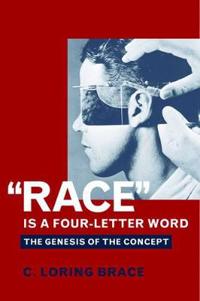A Guide to the Selected Poems of T.S. Eliot: Sixth Edition (Häftad)
avB. C. Southam
ISBN: 9780156002615 - UTGIVEN: 199608A unique guide designed to help the readers of Eliot's personally chosen collection, Selected Poems. Specific information about the poems and their development is included, as is a chronology of the poet's life and work.
[...]Modern Man in Search of a Soul, (Häftad)
avCarl Gustav Jung, C. G. Jung
ISBN: 9780156612067 - UTGIVEN: 195508The Swiss psychologist discusses such aspects of analytical psychology as dream analysis and the primitive unconscious[...]
Postcolonialism: A Very Short Introduction (E-bok)
avRobert J. C. Young
ISBN: 9780191622274An innovative and lively account of both the history and key debates in postcolonialism. Robert Young situates it in a wide cultural context, discussing its importance as an historical condition, and as a means of changing the way that we think about the world.[...]
The Second World War (Pocket)
avR.A.C. Parker
ISBN: 9780192802071 - UTGIVEN: 2001-09-27Presenting the history of the Second World War, this book examines the causes of the war, how it was won and lost, and its consequences for humanity.[...]
Russell (Häftad)
avA. C. Grayling
ISBN: 9780192802583 - UTGIVEN: 200202Bertrand Russell (1872-1970) is one of the most famous and important philosophers of the twentieth century. In this account of his life and work A.C. Grayling introduces both his technical contributions to logic and philosophy, and his wide-ranging views on education, politics, war, and sexual mora[...]
Hanging Tree, The: Execution and the English People, 1770-1868 (Pocket)
avV. A. C. Gatrell
ISBN: 9780192853325 - UTGIVEN: 1996-10-17Wittgenstein (Häftad)
avA. C. Grayling
ISBN: 9780192854117 - UTGIVEN: 200102Ludwig Wittgenstein (1889-1951) was an extraordinarily original philospher, whose influence on twentieth-century thinking goes well beyond philosophy itself. In this book, which aims to make Wittgenstein's thought accessible to the general non-specialist reader, A. C. Grayling explains the nature an[...]
A Preface to Paradise Lost (Häftad)
avC. S. Lewis
ISBN: 9780195003451 - UTGIVEN: 194112A Preface to Paradise Lost provides an interpretation of Milton's purpose in writing the epic.
In the Spirit of Hegel: A Study of G.W.F.Hegel's "Phenomenology of Spirit" (Pocket)
avProfessor Robert C. Solomon
ISBN: 9780195036503 - UTGIVEN: 1985-10-31Immodest Acts: The Life of a Lesbian Nun in Renaissance Italy (Häftad)
avJudith C. Brown
ISBN: 9780195042252 - UTGIVEN: 1986-12The discovery of the fascinating and richly documented story of Sister Benedetta Carlini, Abbess of the Convent of the Mother of God, by Judith C. Brown was an event of major historical importance. Not only is the story revealed in Immodest Acts that of the rise and fall of a powerful woman in a ch[...]
Endings: A Sociology of Death and Dying (Inbunden)
avMichael C. Kearl
ISBN: 9780195045154 - UTGIVEN: 1989-10-26Brave New Mind: A Thoughtful Inquiry into the Nature and Meaning of Mental Life (Inbunden)
avPeter C. Dodwell
ISBN: 9780195089059 - UTGIVEN: 1999-10-01Passion for Wisdom, A: Very Brief History of Philosophy (Inbunden)
avRobert C. Solomon, Kathleen Marie Higgins
ISBN: 9780195112085 - UTGIVEN: 1997-10-02A Better Way to Think About Business (Inbunden)
avRobert C. Solomon
ISBN: 9780195112382 - UTGIVEN: 1999-06Is business ethics a contradiction in terms? Absolutely not, says Robert Solomon. In fact, he maintains that sound ethics is a necessary precondition of any long-term business enterprise, and that excellence in business must exist on the foundation of values that most of us hold dear. Drawing on tw[...]
Population Dynamics: A Renaissance in the Economic Approach (Inbunden)
avC.Y.Cyrus Chu
ISBN: 9780195121582 - UTGIVEN: 1998-06-01Bowing to Necessities: A History of Manners in America, 1620-1860 (Inbunden)
avC.Dallett Hemphill
ISBN: 9780195125573 - UTGIVEN: 1999-09-01Ecology of the Shortgrass Steppe: A Long-term Perspective (Inbunden)
avW.K. Lauenroth, I.C. Burke
ISBN: 9780195135824 - UTGIVEN: 2008-08-28Intellectual Disability: A Guide for Families and Professionals (Övrig)
avJames C. Harris
ISBN: 9780195145724 - UTGIVEN: 2010-10-16Approximately 2.5 million people in the United States--one percent of the population--have an intellectual disability (previously referred to as mental retardation). These conditions range from genetic disorders such as Down syndrome to disabilities caused by infectious diseases and brain injury. In[...]
First Freedoms: A Documentary History of First Amendment Rights in America (Inbunden)
avCharles C. Haynes, Sam Chaltain, Susan Glisson
ISBN: 9780195157505 - UTGIVEN: 2006-06-15Adverse Events, Stress and Litigation: A Physicians's Guide (Inbunden)
avSara C. Charles, Paul Frisch
ISBN: 9780195171488 - UTGIVEN: 2005-03-01Amnesias, The: A Clinical Textbook of Memory Disorders (Inbunden)
avAndrew C. Papanicolaou
ISBN: 9780195172454 - UTGIVEN: 2006-01-05"Race" is a Four-Letter Word (Pocket)
avC. Loring Brace
ISBN: 9780195173512 - UTGIVEN: 2005-02This text is designed to be used as a supplementary text for any course in which the instructor wants to explore the history of the concept of race in America, the reasons why the concept has no biological validity, and how "race" grew to become accepted as something that virtually everyone regards [...]
Saving Children from a Life of Crime (Inbunden)
avDavid P. Farrington, Brandon C. Welsh
ISBN: 9780195304091 - UTGIVEN: 200612After decades of rigorous study in the United States and across the Western world, a great deal is known about the early risk factors for offending. High impulsiveness, low attainment, criminal parents, parental conflict, and growing up in a deprived, high-crime neighborhood are among the most impor[...]
Letters to Doubting Thomas: A Case for the Existence of God (Inbunden)
avC. Stephen Layman
ISBN: 9780195308143 - UTGIVEN: 2006-10-01



























